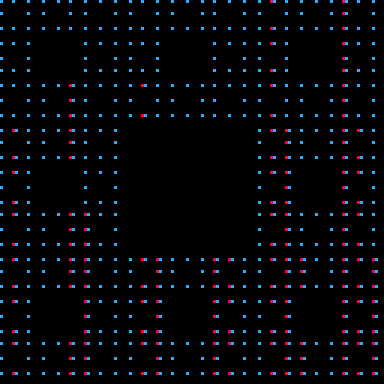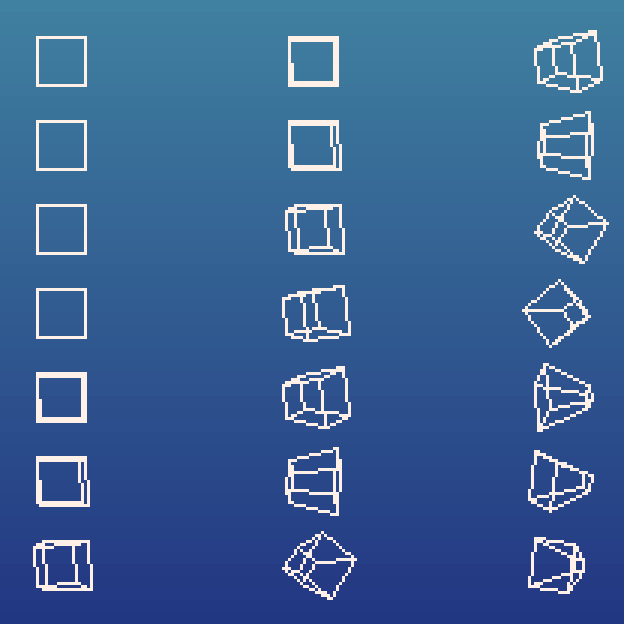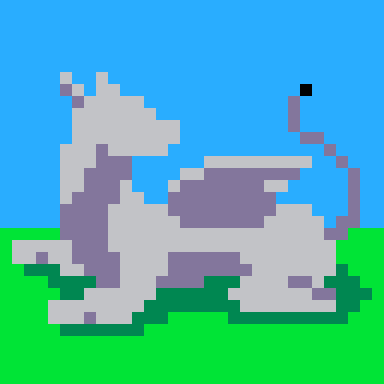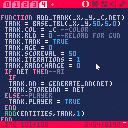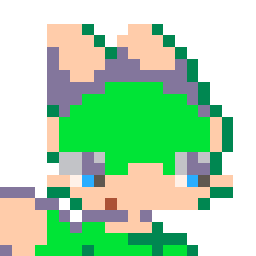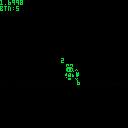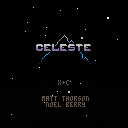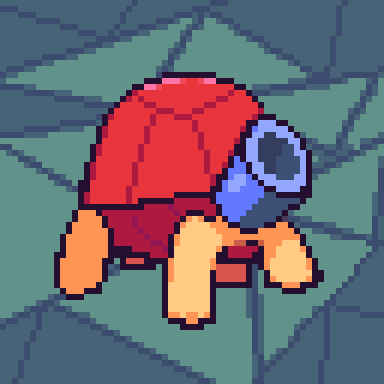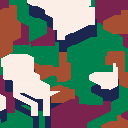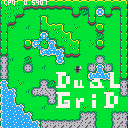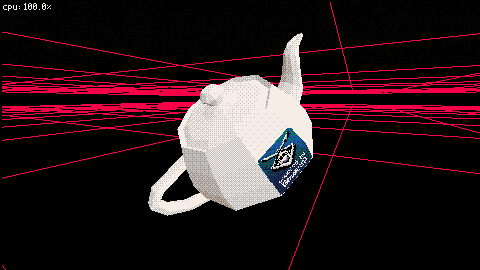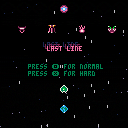

"Smash By Bits Up"
Made for a 512 byte compo at Inercia demoparty (2023)
srand()r=0::f::o={}r+=1if(r>5)stop"⁶c"
t=0g=0h=-9n=0a=1l=cos for f=1,500do g,d=rnd(),g/2-.25s={sin(d),f/25,l(d),sin(d/2)+.3,f/25,l(d/2)*1.5,f/125-3,f/30,f/500,f/125-3,f/30,.5,sin(d)*2-1,f/25,l(d)}i=r*3-2add(o,{f=s[i],o=s[i+1],d=s[i+2],g=3+f/200+r*2})end::i::?"⁶1⁶c1"
circfill(64,550,500,0)t+=.01g,d=rnd(),g*2-1for f in all(o)do e,c,i=f.e,f.f,f.t if f.h then f.e+=f.c f.t+=f.r if(f.f+f.i>0)f.f=min(f.f)f.i*=-.4f.c*=.9f.r*=.7
f.f+=f.i f.i+=.01else e=f.d*l(f.o+t)c=f.f i=f.d*sin(f.o+t)c+=h if(h+n>-1and(e+g*3)^2+(c+r)^2+i^2<a^2)f.h=1f.e,f.f,f.t=e,c,i f.i,f.c=n*.7,e/15f.r=i/15
end e+=t*4-5i+=9-t*4circfill(64+e*64/i,54+(-c+2)*64/i,2/i,1)circfill(64+e*64/i,54+(c+2)*64/i,2/i,f.g)end if(h+n>-1)n*=-.8a*=1.7
n+=.02h+=n if(t>1)deli(o,rnd(#o))deli(o,rnd(#o))deli(o,rnd(#o))deli(o,rnd(#o))deli(o,rnd(#o))deli(o,rnd(#o))
if(t>2)goto f
goto i
|
Here is a little neural network simulation meant to work within Pico-8s memory. The network uses integers between 0 and 255 instead of decimals so each network can be easily saved and loaded from cartridge ROM.
You can make a "tank", give it inputs that act as sight, and decide how big the neural network is. Then you can put these new tanks into a map and have them "learn" (not really).
Hi all,
Has anyone had much experience with calling sfx() with the note offset arg? For me it's very hit and miss. Basically some sfx change pitch, and perhaps other elements, when note offset is set to 1 or 2 but it does not seem to be note for note, and if I try to input a value higher than 2 or 3 I just get silence.
Testing on Picotron 0.1.1b on Ubuntu.
Not sure if this is a bug or not but it does not seem to be working as intended I think.
Any thoughts?
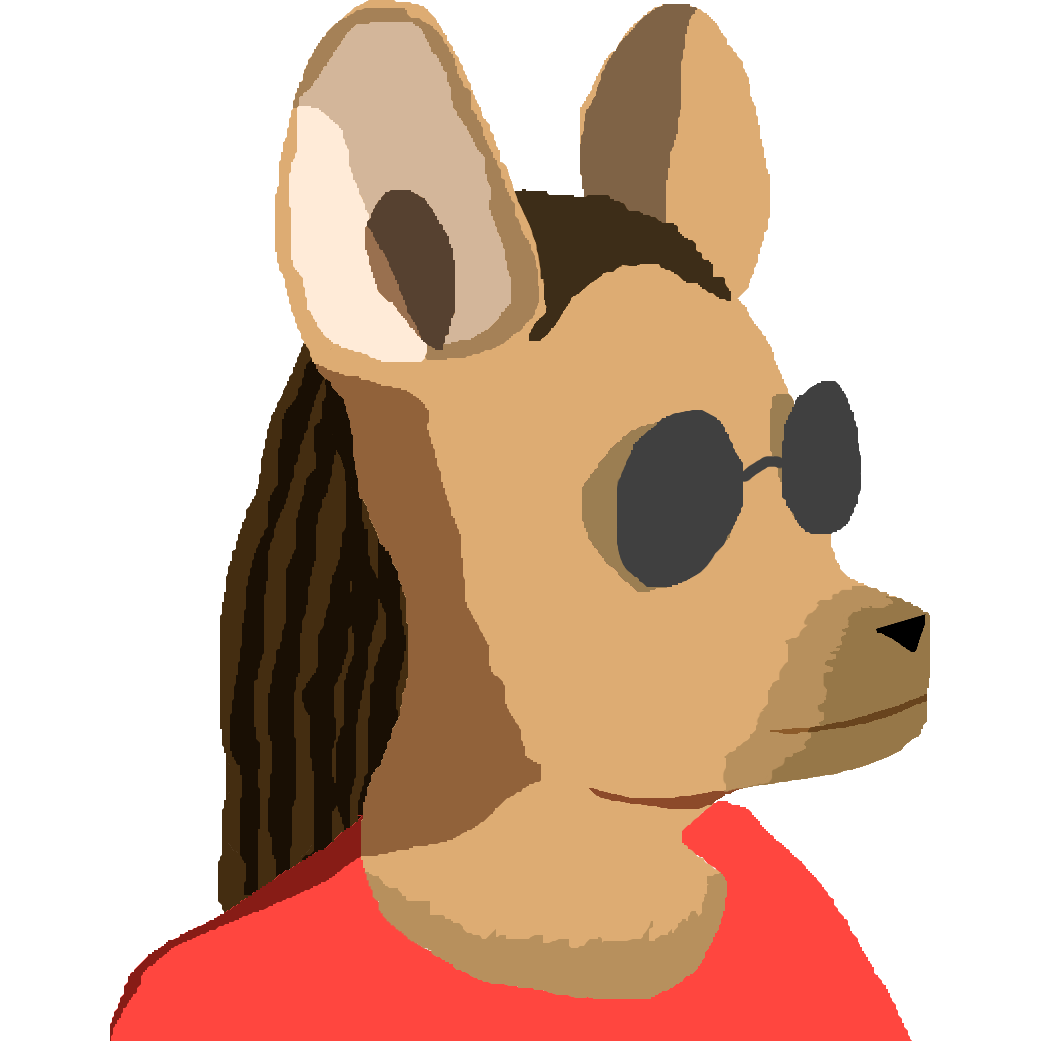
So, the goal of the cartridge is to give celeste veteran's a challenge right?
Well, take that idea, CRANK it up to 100, & make it have a baby with the hardest game on earth.
I only have Level 1 & part of level 2 hacked (The rest is just celeste) so, yeah! have fun!
Also I should give credit to @noel.
This is my attempt to simplify the dual-grid concept for pico8, and come up with a reduce tile set that works with map to make level design and edits easy and fast.
Inspired by the video https://www.youtube.com/watch?v=jEWFSv3ivTg by Jess::codes. check it out for a great breakdown of the dual-grid concept.
The full tile set needs 16 tiles (14 edges, 2 solid). I figured that by rearranging them into a single row in the sprite sheet I could use a single offset number instead of a lookup table.
since only 4 bits are needed for an offset of 16 and in the dual-grid 4 corners are checked, using the corresponding binary number to determine placement order. 0000 for base and 1111 top. check out the following image for placement.
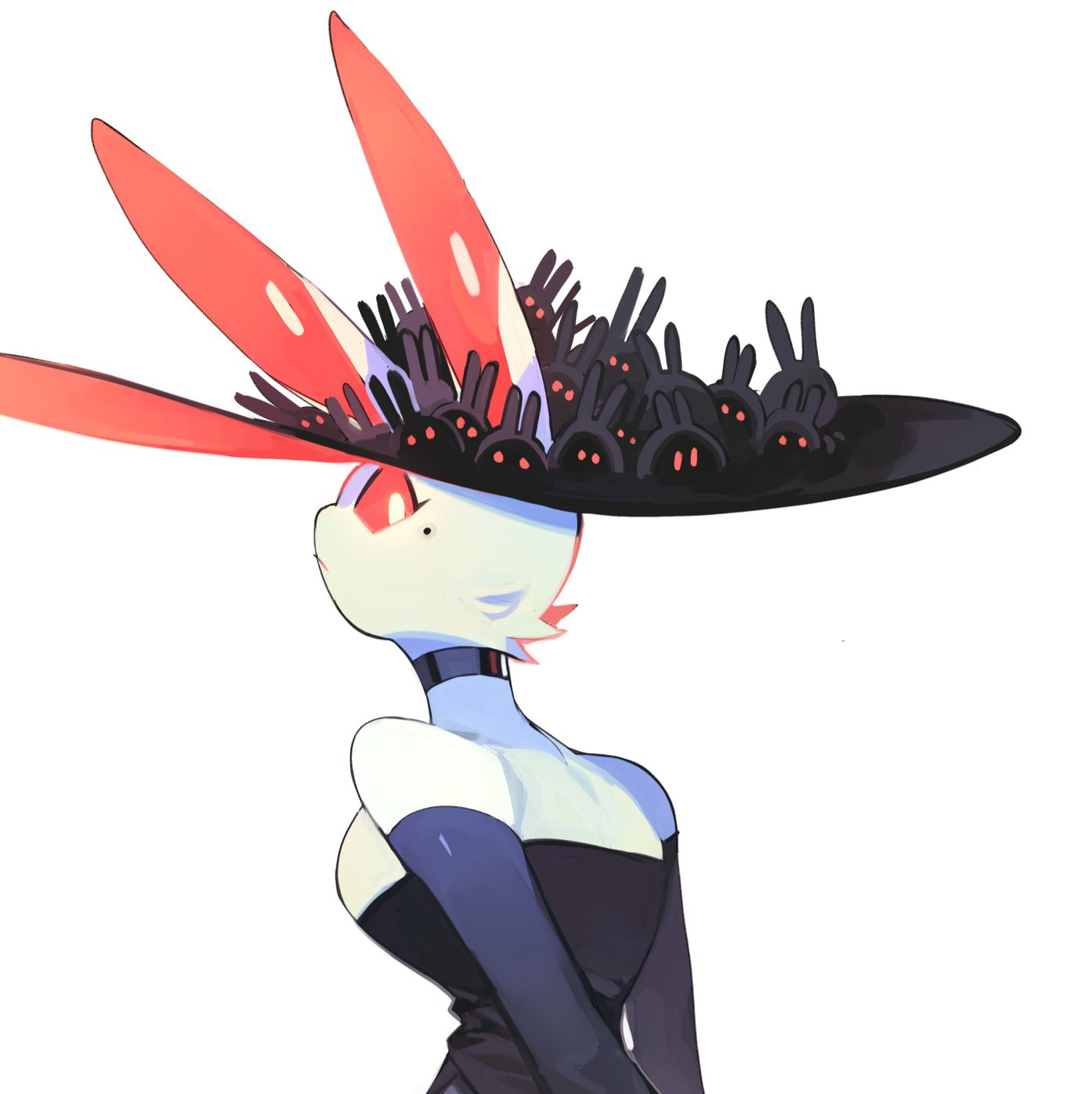


Hey there!
So I've been working with some people on translating a game of mine into a couple of different languages. I can't seem to figure out how to change the default PICO-8 pause menu text into the desired translated text though. As far as I understand, you can clear the menu and add your own items, but I don't really want the translations to have reduced menu features from the original. Is there a way that I missed to actually replace default menu item text? Or some fairly low-token alternate solution? I realize that I'll probably have to settle with some amount of English in the menus so any ideas are welcome.
Thanks! ^^



I made this demo to quickly demonstrate how to use Blade3D, a 3D rendering API I'm working on. It doesn't make full use of the API, but it does give you a starting point if you want to make your own projects using (this version of) Blade3D. Hopefully I can make a slightly more comprehensive introduction to the API with full documentation in the near future, but for anyone willing to look at the underlying code, it should be pretty easy to accomplish whatever you need with just this template.
Something that isn't included in the template is a .obj to .ptm converter, which is provided here. It expects the .obj to include material references (not the .mtl file itself) and for the mesh to be triangulated.

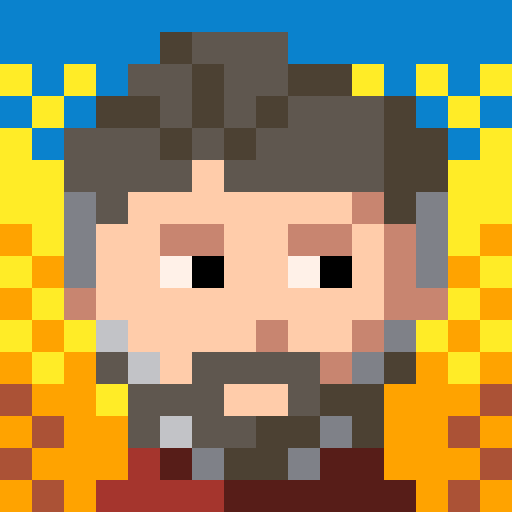

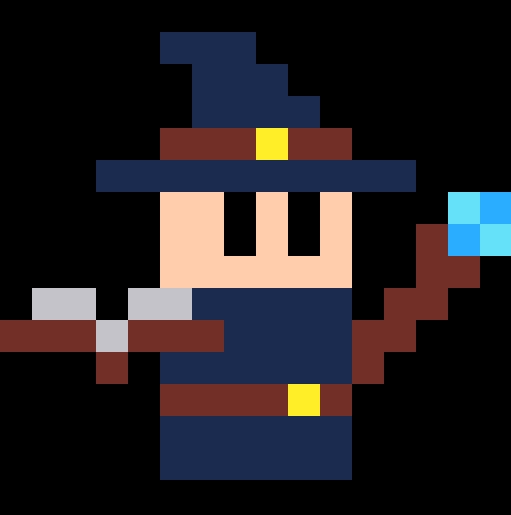
Hello!
Since 0.2.6b, a strange issue appears when enabling the mouse with flags 0x5 on mac (mouse capture enabled).
The cart starts fine, but the more the mouse is used, the more the cart stutters until it's basically unusable.
What's funny is that the performance monitor (ctrl+P) shows weird stuff but does not seem to actually register drops to 30fps or less (at least the 60/60 string never changes).
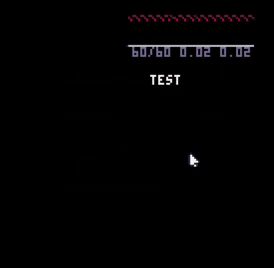
(for a more complete video in 60 fps, see here : https://www.youtube.com/watch?v=jBTMadG90Oc)
It may not much seem like much, but it renders my current game project completely unplayable on mac.
I've managed to get a constant reproduction and made a test cart. I've confirmed that it only appears on mac, in pico-8 or exported as a mac binary. The issue does not appear on an html export on mac. I've also tested it on 0.2.5g, and it did not appear, so it seems to have been introduced in 0.2.6.
I've uploaded the test cart in this message. To reproduce the bug :
- download the cart (don't run it in bbs, it does not reproduce the bug)
- run it on mac
- activate the performance monitor (ctrl+p)
- move the mouse around for 30 seconds
- observe the bug
Set three years after Scorsese's unforgettable psychological drama, "Taxi Driver", a bunch of weird creatures try to kill the whole planet and one sergeant has to shoot them with his space ship.
Made with the Lazy Dev Basic Shmup Tutorial
https://www.youtube.com/watch?v=81WM_cjp9fo&list=PLea8cjCua_P3Sfq4XJqNVbd1vsWnh7LZd



日本のプログラマーの間で一時期ミームになっていた「ズンドコキヨシ」をPICO-8で作成しました。
元ポスト https://x.com/kumiromilk/status/707437861881180160
[操作]
〇 (z) …ズンドコキヨシ開始
× (x) …デバッグ用(確定でキヨシができます)
[for English Users (from DeepL)]
This runs “ZUN-DOKO KIYOSHI” on the PICO-8.
It was briefly popular as a challenge for programming beginners in Japan, like FizzBuzz.
The rules are as follows...
・Randomly output either “ZUN(ズン)” or “DOKO(ドコ)” to the rhythm.
・When the sequence of “ZUN”, “ZUN”, “ZUN”, “ZUN”, “DOKO” is established, a “KIYOSHI(キヨシ)” chime is added.
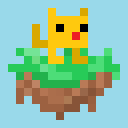
The Crab Boss V2 is here! Please tell me if you see any glitches, or have an idea for something to make my game more fun. I hope you enjoy!
Whats New
The "Aim Toggle". Aiming directions have been added! Origanally, you just pressed X, and the bomb would be thrown.
Outlines! I created an automatic outline function, and added it to sprites and text.
Also, I added pressing X then Z to skip the beginning cutscene.
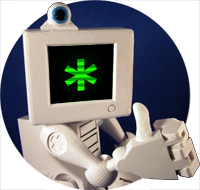




I bought a couple of bluetooth gamepads off Amazon:
KIWITATA 2.4G Wireless NES USB Controller
Which are imitation NES classic, 2-button, D-pad, select start controllers.
It gets recognized right away by my latest Linux Mint OS and works in Pico-8
EXCEPT that both buttons do the same thing (I think they are both X).
I ran this code:
function _draw() cls() ?btn() end --both B and A output 32 |
and sure enough I get different values for all the buttons except both B1 and B2 print 32.
I've found this thread https://www.lexaloffle.com/bbs/?tid=3623 where one poster talks about the same problem. But its from 2016 and was for pocketCHIP and they solved it by getting a different controller.
I've also installed the SDL2 gamepad-tool for Linux but had issues. It sort of works EXCEPT that it wont recognize left/right on the dpad. I tried a million times and also tried skipping and mapping it to the little joysticks instead but it didn't work.

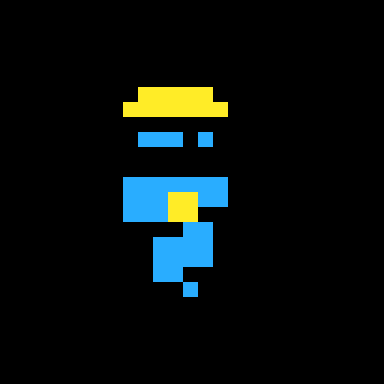
Hello,
I'm wondering if include has a return value similar to require that would allow me to keep my various modules defined locally and not pollute my global environment, or if there is a trick to using require in Picotron. I'm keeping things pretty organized, but it would be really nice to have the flexibility of require. I thought Picotron used Lua 5.4? Or is it just a subset?
Thanks,
Mushky


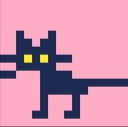






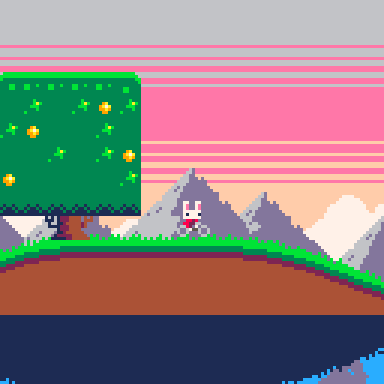
 2 comments
2 comments

